In this article I’ll share my project update template.
We’ll look at the key points you should cover, and why.
All with the goal of making those happy who’ve placed their trust in you.
Let’s go.
Quick Tour: My Project Update Template
The template is intended for general updates to a leadership audience. It is not specific to particular areas but can be used for any project.
Did I introduce myself? I’m Adrian, a Senior Project Manager with over 10 years leading IT and business projects. I regularly provide progress updates to a demanding leadership audience. This is the PowerPoint I use for those updates.
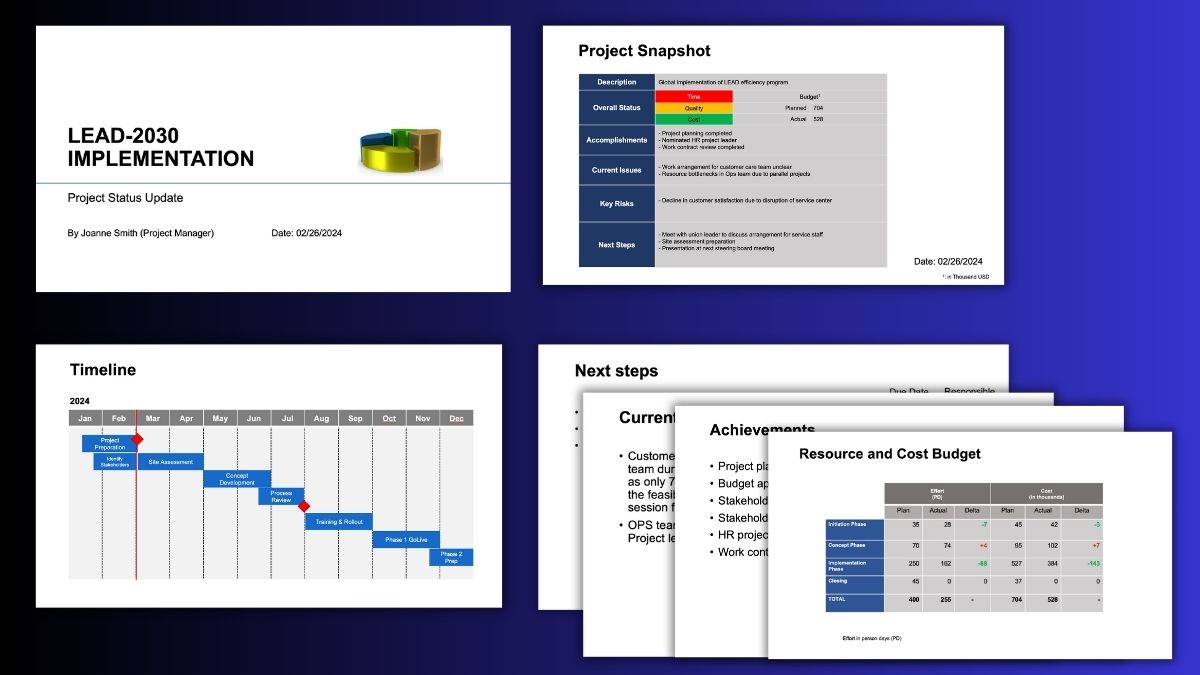
Content:
- Project Snapshot: The first slide gives all the interesting parameters in a single, easy-to-understand tabular format. This includes overall project health, budget used, risks and other information.
- Timeline: On the timeline, people can see where your project is right now and what’s coming up next. This provides the necessary context so your updates make sense to the audience.
- Achievements: A high-level overview of major achievements by the project team since the last update. Sharing your wins reassures management that you’ve got the project under control and helps build your reputation as a strong project leader.
- Issues and Risks: Any current or potential risks and issues should be listed here, along with a clear plan on how these will be tackled.
- Next steps: We want to give the audience a preview of what’s ahead. Just like our team, leaders appreciate the outlook so they know how to support in the best possible way.
- Budget: If you’re working with budgets, fill out the cost table in this section to give leaders an insight of your project’s cost situation.
If you’re using Earned Value Management to measure the progress of your project, you may also include the EVA metrics including Earned Value, CPI and SPI in a separate slide.
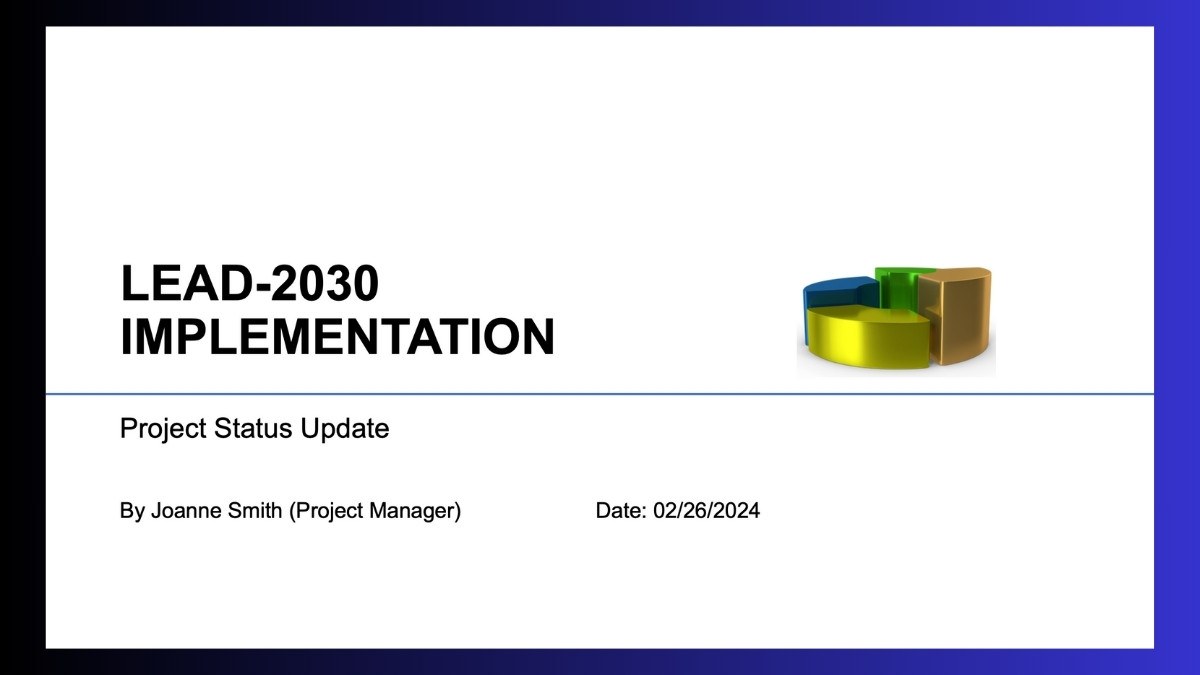
Section: Project Snapshot
The first slide gives a quick overview of the current project status. Remember that senior leaders are often pressed for time, so they appreciate a concise summary that gets straight to the point. If something catches their interest, they can easily jump to the relevant section for more details.
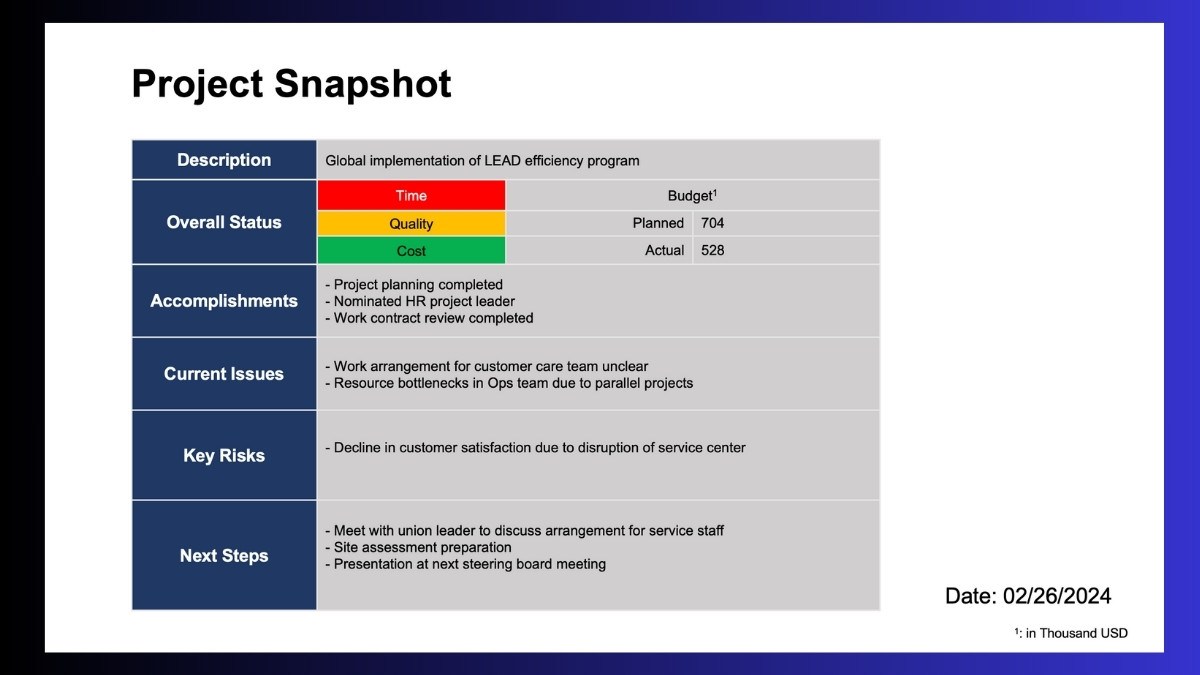
The color coding reflects the status with respect to schedule, quality and budget.
Section: Timeline
I always like to kick off presentations with a strong visual. Start with walls of text and you’ll lose your audience’s attention fast. A timeline is perfect for project updates. It helps everyone understand where the project stands right now and what the next milestones are.
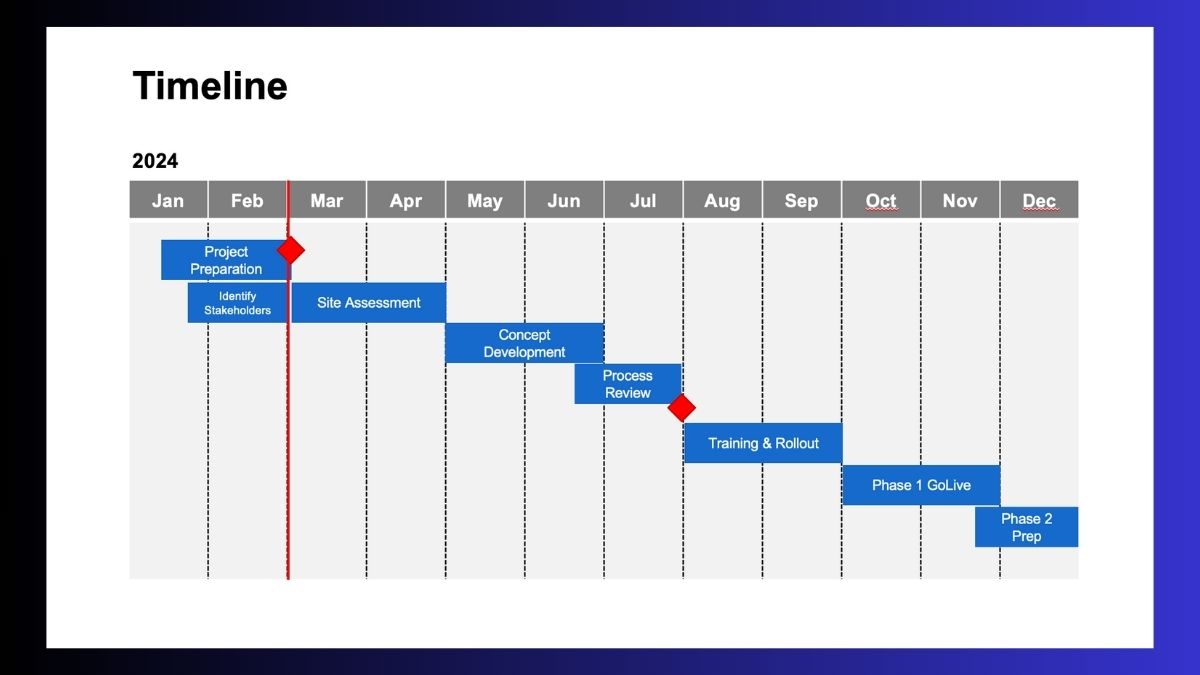
I would NOT suggest pasting your detailed, primary schedule here. The one you build in Microsoft Project for example. The level of detail may be overwhelming for people. Instead, keep it high-level by grouping tasks under relevant headings, like I’ve done in this example.
Section: Achievements
Use this section to highlight any major tasks or milestones completed since the last update. There’s no hard rule for what counts as a major accomplishment, but it’s important to tailor the content to your audience.
If you have mostly business folks in the meeting, avoid going into too much detail on technical achievements. Keep it high-level and focus on sharing your biggest wins!
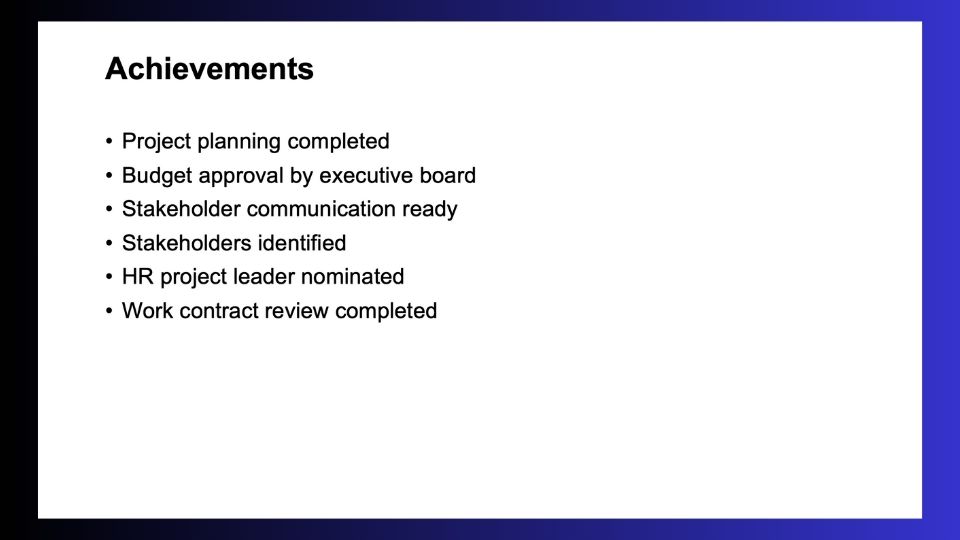
Section: Issues and Risks
While you probably have a nearly endless list of smaller issues that bother you, try focusing on the most grave issues that could potentially jeopardize project success.
Also, think about how senior leadership could potentially help resolve those issues.
Section: Next Steps
Highlight the major activities and milestones the project team will tackle over the next 4-8 weeks.
Make sure to include any steps that directly address the issues covered on the previous slide.
Section: Budget
The Project Update Template allows you to show planned versus actual resource usage and costs, so everybody can easily see how things are tracking.
As most projects are using a phased approach, I’ve included a table for showing planned vs. actual costs per project phase.
Add some commentary for any major deviations, otherwise people will get confused and start bombarding you with questions.
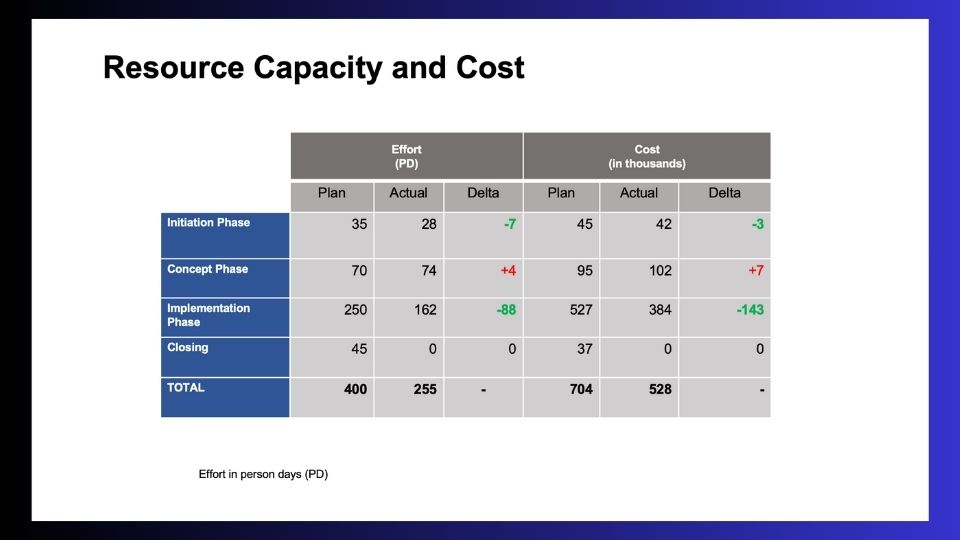
The phase view is useful for explaining deviations in both cost and effort.
For example, if you significantly exceeded the planned capacity in one phase, you can use the phase view to highlight which teams had to put in extra work.
Why you should use a standard update template
The benefit of using the same template for each of your status meetings is that it provides a simple structure that people can understand. Your audience, typically senior executives in a steering committee meeting, will get used to the structure of your updates.
They can focus on the content of your message instead of having to spend time on understanding the structure and reading the Powerpoint.
Get my project update template
You can download my template here and customize it based on your needs.
Author
-
Hi, I’m Adrian, a Senior Project Manager and the Creator of Tactical Project Manager, where I teach a pragmatic approach to project management. Led large-scale IT and business projects for over 10 years. My goal is to enable you to lead any project with confidence.
View all posts



